Stories of Faith and Martyrdom
Honouring the Lives of Those Who Laid Down Everything for Christ
This page is dedicated to preserving and sharing the powerful stories of Iranian Christian martyrs—men and women who followed Jesus with unwavering faith, even unto death. Their lives tell of courage in the face of persecution, deep compassion for their communities, and a steadfast hope in God’s promises. From the faithful ministry of Reverend Hossein Soodmand to the sacrificial witness of Bishop Haik Hovsepian-Mehr, each story reflects the cost and the beauty of following Christ in a context of hostility.
These accounts are not merely history; they are a living testimony and a call to stand in prayerful solidarity with the persecuted Church in Iran and beyond. May their legacy inspire us to live with boldness, love, and eternal perspective.
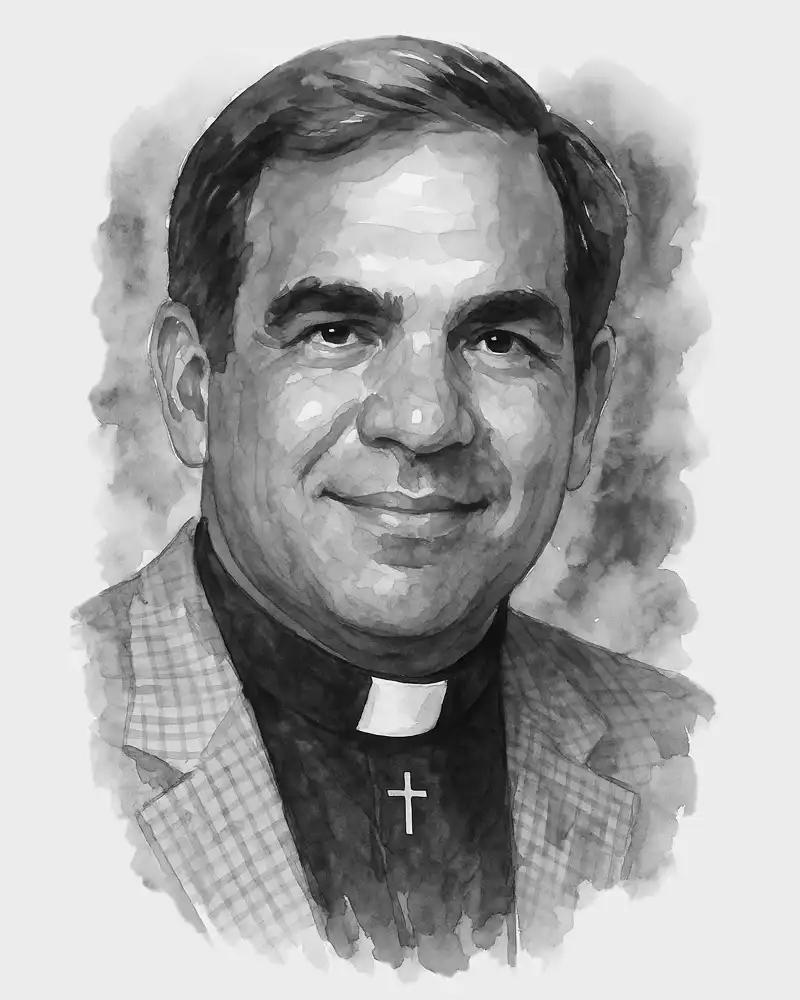
Reverend Hossein Soodmand
If you had been an Armenian Christian or Jew living on the outskirts of Mashad in the late 1940’s, one of the trials of life would have been the young boys who used to gather near the local well. As you went to draw water, they would throw stones and jeer at you, shouting ‘Unclean! Unclean!’ One of those boys was Hossein Soodmand. He was from a normal family, middle class and fairly religious. His father, though, had left him when he was three, and now he and his two siblings were being brought up by their mother. She poured her life into her children, who adored her, but she also worked as a nurse. So she could not always control Hossein’s boyish antics. Little known to any involved in those scenes at the well, an incident there would mark the seven-year-old Hossein.
It was another afternoon of teasing the Christians, but then Hossein made a direct hit. His stone struck and broke a lady’s water bucket. Time to make an escape: the young lad turned and sped off expecting to soon be home. But he tripped over a large stone and fell to the ground. Blood began to flow from his knee. Worse, the Christian woman was steadily advancing towards him. Fear gripped the little boy. There was no escape. He had thrown the stones. He deserved the punishment.
Now her shadow was looming over him: soon her hand would rise, and the blows would descend. But they did not. Instead her hand reached down, helped the young Hossein to his feet and the ‘unclean’ Christian cleaned the wound. She then gave the boy some sweets. He had shown hate. She had shown love. And Hossein Soodmand never forgot this. In a few years that seed of forgiveness and kindness sown by that unknown lady would so grow that Hossein from Mashad would become a Christian.
After finishing school, Hossein Soodmand went to Ahvaz for his military service, where he found a church. Why should a Muslim want to go to a Christian church? The answer is found in a letter the martyr Mehdi Dibaj wrote from prison to the family many years later. In 1959 Mehdi Dibaj was serving at that church in Ahvaz and the priest introduced him to the young Soodmand. “I asked him, ‘What made you want to come to the church?’ He said, ‘I got very sick when doing my military service and had to go to the hospital. An Armenian Christian came to see me and when he was leaving, he left me a cross. That night I had a dream of Jesus Christ. He gave me something to eat. I woke up sweating and realised I was better. Then I kept on asking people where to find a church, till I found myself here to worship God.” It was in that church that Hossein Soodmand became a Christian.
Hossein Soodmand was now to experience the impact of that word ‘unclean’ in a very brutal way. For when he told his family that he had become a Christian, he was asked to leave. Here he established a crucial principle in his life. He loved his family; but he loved Christ more. He went to Tehran and worked as a street vendor, staying with Christian friends from his days in the army. His concern in these days was not money – it never would be. His absolute priority was God. He would make sure he got to every Bible Study meeting, and spent many hours being discipled by Mehdi Dibaj. Seeing the dedication of Hossein Soodmand, the church leaders in Tehran encouraged him to attend the Bible courses taught in the Garden of Witness (Bagh e Behsarat), a beautiful retreat centre outside the city. The courses were to be taught by the well-known and much-loved American Presbyterian missionary to Iran, Dr. William Miller. Hossein Soodmand soaked in the teaching, was always the top student, and developed a reputation there as an evangelist. After this he became a bookseller for the Bible Society and travelled across Iran selling the Scriptures. In 1970, Hossein Soodmand went to Isfahan and began work in the Christian Institute for the Blind run by the Anglican Church. He really cared for the blind and enjoyed serving them. While serving he fell in love with a blind lady, Mahtab. In 1972 they were married by Rev. Arastoo Sayyah in the Church of Saint Luke, Isfahan.
Starting his married life in Isfahan Rev. Soodmand continued to be a fervent evangelist, sharing the Gospel at every opportunity. He kept up a good relationship with the Anglican Church but decided to join the Assemblies of God (AOG) fellowship where Edward Hovsepian-Mehr was the pastor. After a while, he became the assistant pastor. In September 1977, when Edward was sent to the AOG church in Urumieh, Hossein Soodmand became the pastor of the church in Isfahan. With his growing family, (he now had two children), he served the church in Isfahan for three years. In 1980 he moved to Mashad, the city of his birth, to evangelize and plant a church. He went with a burden in his heart, and the blessing of the Council of the AOG Churches in Iran.
Hossein Soodmand was very active in Mashad. Though he suffered from varicose veins, he did not stop cycling everywhere to minister. Many believed, and a fellowship was born, with the basement of the Soodmand family’s house becoming home to a small church. Seeing the fruit of his work, the church decided to ordain Hossein Soodmand in 1988. This was when the martyr Haik Hovsepian-Mehr was the bishop of the AOG.
Even as he was being ordained, the storm clouds of persecution were gathering against Rev. Soodmand, his family (he now had four children), and members of his fellowship. The church was forced to close and Rev. Soodmand and other believers were often arrested by the religious police. They suffered psychological and physical torture. Though the church was closed, Rev. Soodmand never stopped working, and would gather his flock privately to teach and encourage them.
When the religious police saw they were not able to silence Rev. Soodmand, persecution increased. In early 1990 Rev. Soodmand was not just imprisoned but put into solitary confinement and tortured. The Assemblies of God Churches campaigned strongly for his release and after one month Rev. Soodmand was freed.
Bishop Haik Hovsepian-Mehr now suggested to Rev. Soodmand that he should leave Iran because his case had become so serious. This was Rev.Soodmand’s response:
‘I am a follower of the great shepherd of the sheep, our Lord Jesus Christ, and I am ready to sacrifice my soul for my sheep. For me to escape from this persecution, would cause the hearts of my flock to become cold and weak. And I never want to be a bad example for them, so I am ready to go to prison again and, if necessary, to give my life.’
Rev. Soodmand did not run away. He was not a bad example. He stayed at his post, looking after his flock. And so he was arrested again. After a few days the family were allowed to visit him. They were not allowed to see him again. They had no more news. Two weeks after his arrest Rev. Rubik Hovsepian, the brother of Bishop Haik Hovsepian Mehr, went to the offices of the religious police. He was given this chilling information: Rev. Soodmand, according to the sentence passed by the special religious judge, was executed in Mashad prison on December 3rd, 1990.
The authorities knew when the execution was going to happen, yet they did not allow Rev. Soodmand’s family, his fellow Christians, or his friends, to visit him or receive his will. Persecution continued to follow the family after the martyrdom of Rev. Soodmand. The authorities did not give them permission to bury the body. Instead he was buried by strangers in a part of the Mashad cemetery reserved for those the government call ‘the cursed’. The family were not allowed to put up a headstone, a cross, or even a simple sign with his name. For those who do not know, this is a dusty, unmarked grave. For those who know, though, it is most certainly marked.
It is marked by the sacrifice of a faithful and true witness to Christ. Rev. Soodmand was utterly committed, and His love for God always came first. In every circumstance of life, Rev. Soodmand never betrayed his Master. He took up his own cross, denied himself, and followed his beloved Lord. For his blind wife, he was a faithful and sensitive husband. He instinctively understood how she was feeling, and with kindness served her needs. He was a very loving father to his children and brought them up to love the Word of God and the Christian life. Such was the impact of his life that all his children, including Rashin, are walking closely with the Lord, and serving His kingdom. Rev. Soodmand had a deep knowledge of the Bible and his teaching built up and shaped his disciples in Mashad. After the martyrdom, Rev. Sepehr pastored the house groups of the church for a while. A good number of Rev. Soodmand’s disciples are now in full-time Christian service.
The memory of Rev. Soodmand and all the other martyrs of the church in Iran will never be forgotten on earth. Nor will he be forgotten in heaven, where no doubt one of the first saints to welcome him was that dear lady who washed his wound when he was a frightened little boy.
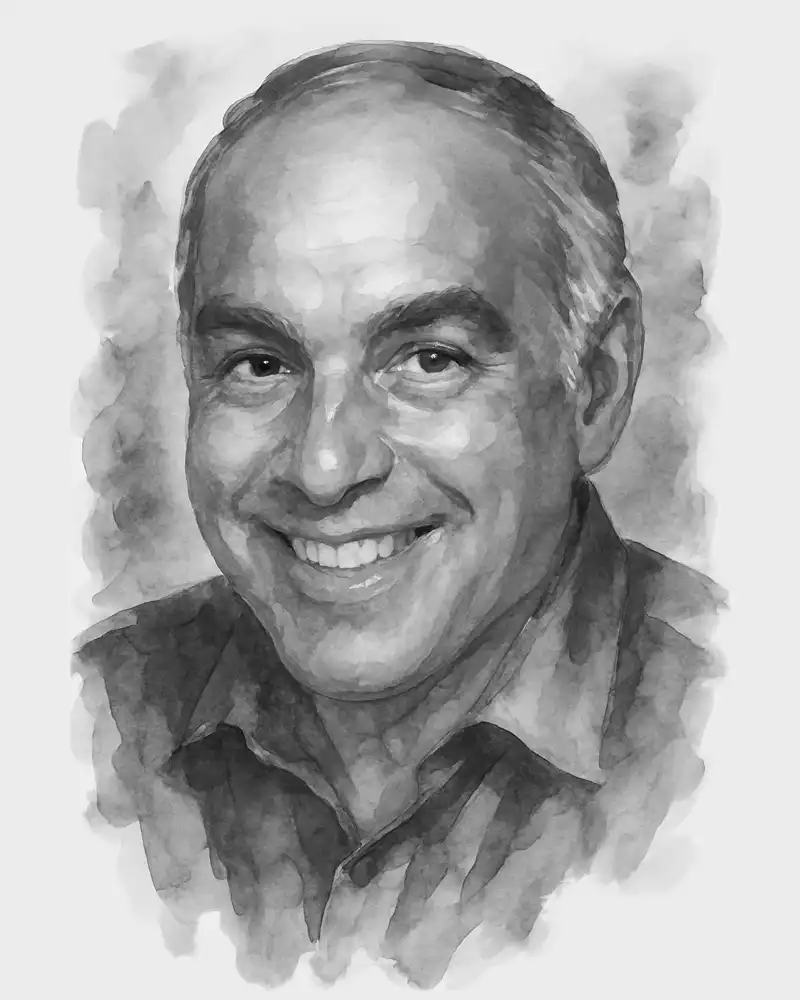
Rev Arastoo Sayyah
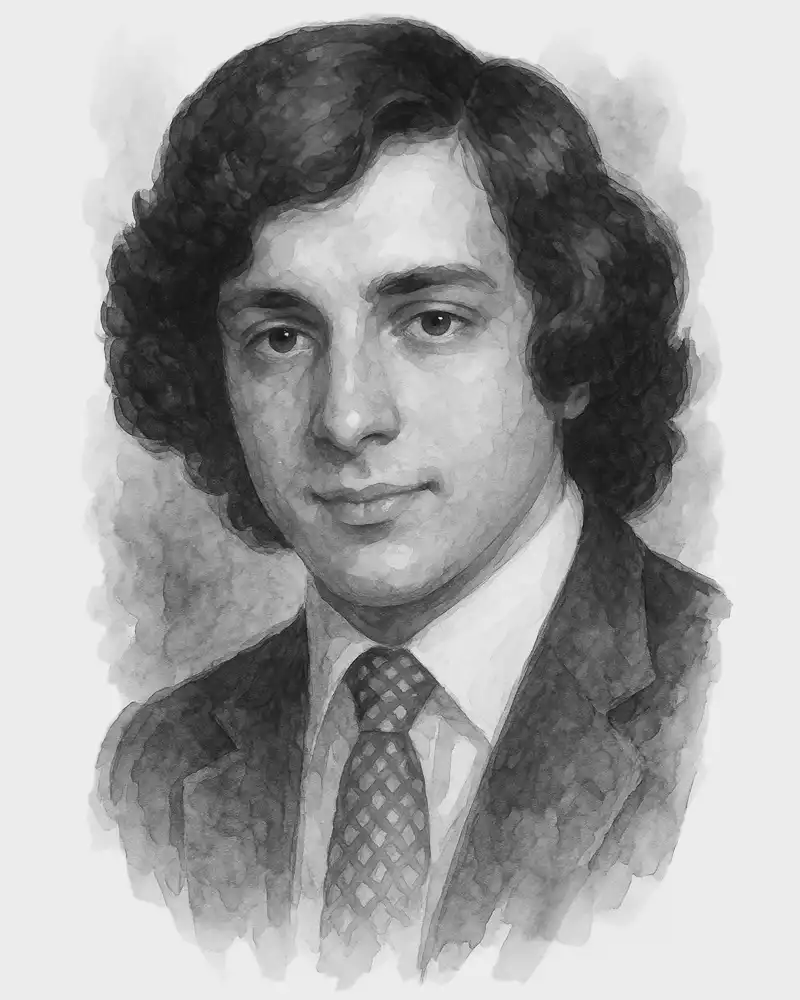
Bahram Dehqani-Tafti
Bahram, son of Margaret and Bishop Hassan Dehqani-Tafti was murdered on 6th May 1980 aged 24 years. Leading up to this killing there had been an assassination attempt on the Bishop when on the previous October (26th) a number of shots were fired early one morning when the Bishop and Margaret were in bed. Miraculously apart from one bullet through Margaret’s hand they were both spared. The other bullets all hit the pillow. The Bishop left Iran 2nd November and was never to return. Following Bahram’s school education in Iran and England, a degree from Oxford University in England, and an MA from George Washington University in the USA, he returned to Iran in 1978 to take up a teaching post in Damavand College, Tehran. It was while he was returning from Damavand College that the assassins stopped his car, forced him out of the driving seat and drove him off to a quiet road and then shot him in his own car. Following his death, this was the prayer of his father: “A Father’s Prayer upon the Murder of his Son Oh God, We remember not only Bahram but also his murderers; Not because they killed him in the prime of his youth and made our hearts bleed and our tears flow, Not because with this savage act they have brought further disgrace on the name of our country among the civilized nations of the world; But because through their crime we now follow thy foot-steps moreclosely in the way of sacrifice. The terrible fire of this calamity burns up all selfishness and possessiveness in us; Its flame reveals the depth of depravity and meanness and suspicion, the dimension of hatred and the measure of sinfulness in human nature; It makes obvious as never before our need to trust in God’s love as shown in the cross of Jesus and his resurrection; Love which makes us free from hate towards our persecutors; Love which brings patience, forbearance, courage, loyalty, humility, generosity, greatness of heart; Love which more than ever deepens our trust in God’s final victory and his eternal designs for the Church and for the world; Love which teaches us how to prepare ourselves to face our own day of death.” (English “The Hard awakening” pages 113-114) We thank God for the memory of Bahram Dehqani-Tafti.
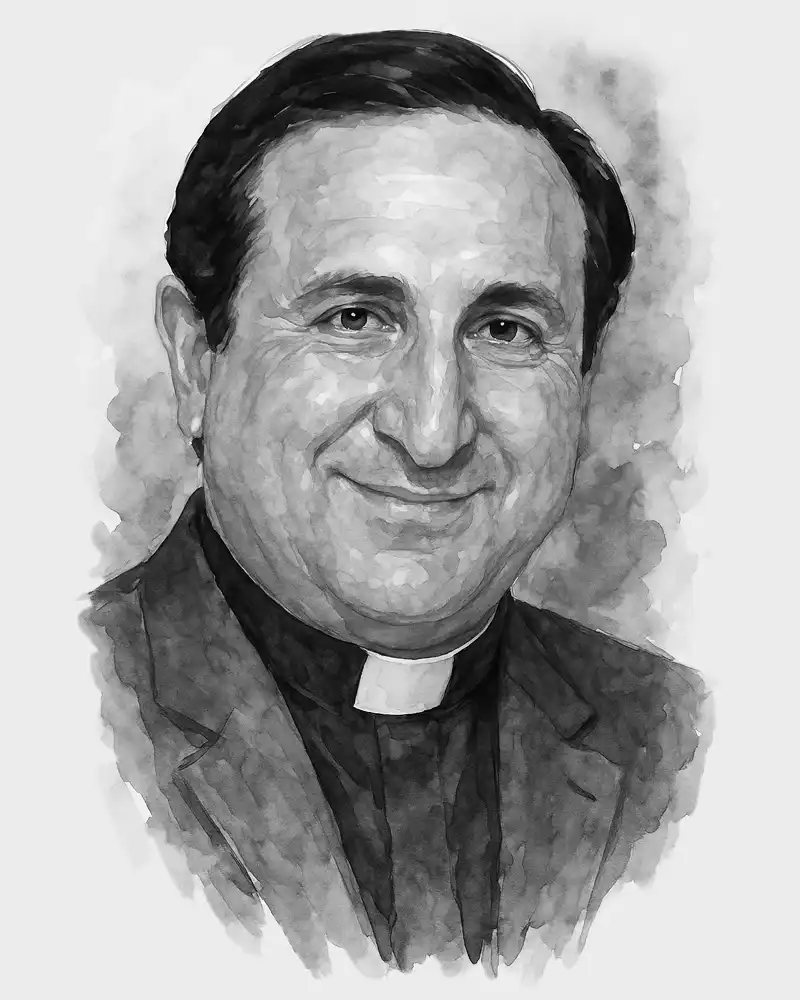
Bishop Haik Hovsepian-Mehr
Bishop Haik campaigned for the release of Mehdi Dibaj who had been condemned to death on 21st December 1993. He was the one who released Mehdi Dibaj’s Defence Statement which has been distributed all the over the world and has been such a great challenge and blessing to many. However, just three days after the Government released Mehdi Dibaj from prison, Bishop Haik disappeared on Wednesday 19th January. On Sunday morning 30th January, ten days after his disappearance, the Tehran Office of Police Intelligence asked his family to report to
the station in order to indentify a body. Through a photograph shown to Joseph he was able to identify his father’s body. According to the Government official in Iran, Haik’s body was found by the Police in one of the suburbs of Tehran on 20th January. He had been stabbed many times in the chest. The authorities had originally buried Haik in a Muslim cemetery but gave permission for the body to be returned to the family for a Christian burial. The burial took place in the Christian cemetery on 3rd February in the presence of over 2,000 people followed by a memorial service in Tehran on 7th February and one at Westminster Central Hall in London on 17th February. Bishop Haik served in different places including 14 years in the city of Gorgan. In 1982 he was appointed the Superintendent of the Assemblies of God churches in Iran and it was in this capacity as a Superintendent that he was known in Iran as a bishop. During his 12 years as Superintendent he travelled widely throughout the country encouraging the church leaders. He was also a musician and singer writing many Christian songs in Persian and Armenian and he made a number of recordings. Bishop Haik’s influence extended well beyond his own denomination. One of his main contributions was to bring a closer co-operation between all the Protestant Churches in Iran and when the Council of the Pastors of the Iranian Protestant Churches was established in 1987 he was appointed its chairman – a position he held until his death. This enabled him to have a wider role in representing all the Protestant churches before the Government authorities as well as working with all the church leaders. In an article written in the Times newspaper under the title “Martyred for his faith” and printed in London on 15th February, Bernard Levin quotes from a letter that Bishop Haik wrote the day before he vanished: “Praise the Lord for all his victories! Brother Dibaj has just arrived in our house. Tonight there were more than 50 young zealous Christians in our house. They had heard that Dibaj was coming to our house. When Dibaj entered the house all the believers started to sing ‘In the Name of Jesus, we have the victory’. This was the best greeting they could offer to our hero…however we should keep in mind the persecutions that other converts are going through.” The article continues by listing various threats and problems that Christians were facing and then Bishop Haik towards the end of the letter writes: “The reason for writing these things is that if those enemies of the Cross continue their new strategy of persecution, we may lose all our converts…I know it is playing with fire and but I am ready to die for the cause of the church so that others will be able to worship their Lord peacefully and without so much fear”. We thank God for the memory of Bishop Haik Hovsepian-Mehr.
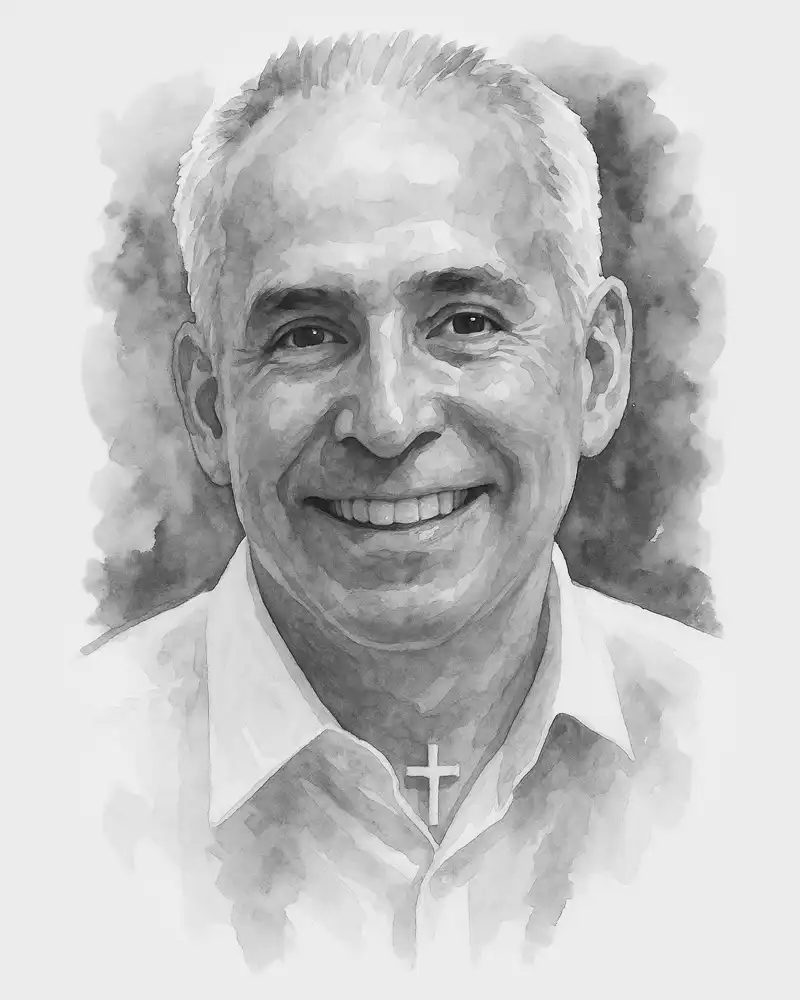
Rev Mehdi Dibaj
Mehdi Dibaj who was born in 1934, was a well known Christian worker and an evangelist who in addition to his ministry in Iran, spent some time in Afghanistan and even translated Mark’s Gospel into Dari. He was arrested in 1983 and imprisoned in Sari prison in Mazandaran, Iran until January 1994. During this time he spent two years in solitary confinement. He was charged with apostasy and was sentenced to death by the Revolutionary Tribunal of Sari. Although he was released on January 16th 1994, due to international pressure and mainly thanks to the efforts of Bishop Haik Hovsepian-Mehr, the charges against him were never dropped. Mehdi mysteriously disappeared on 24th June 1994 and on 5th July he was found dead in suspicious circumstances in a park in Tehran. He had been stabbed to death.
Mehdi became well known around the world because of the publication of his defence statement in English and Farsi. It was even printed up in the Times newspaper in London. Here is part of his defence statement given at the Court in Sari on 3rd December 1993. “They tell me, ‘Return!’ But from the arms of my God who can I return to? Is it right to accept what people are saying instead of obeying the Word of God? It is now 45 years that I am walking with the God of miracles, and his kindness to me is like a shadow and I owe Him much for His fatherly love and concern. The love of Jesus has filled all my being, and I feel the warmth of His love in every part of my body. God, who is my glory and honour and protector, has put His seal of approval upon me through His unsparing blessings and miracles. The good and kind God reproves and punishes all those whom He loves. He tests them in preparation for heaven. The God of Daniel, who protected His friends in the fiery furnace, has protected me for nine years in prison and all the bad happenings have turned out for our good and gain, so much so that I am filled overflowing with joy and thankfulness. “Jesus is our Saviour and He is the Son of God. To know Him means to know eternal life. I, a useless sinner, have believed in His beloved person and all His words and miracles recorded in the Gospel, and I have committed my life into His hands. Life for me is an opportunity to serve Him, and death is a better opportunity to be with Christ. Therefore I am not only satisfied to be in prison for the honour of His Holy Name, but am ready to give my life for the sake of Jesus my Lord and enter His kingdom sooner, the place where the elect of God enter everlasting life”. We thank God for the memory of Mehdi Dibaj.
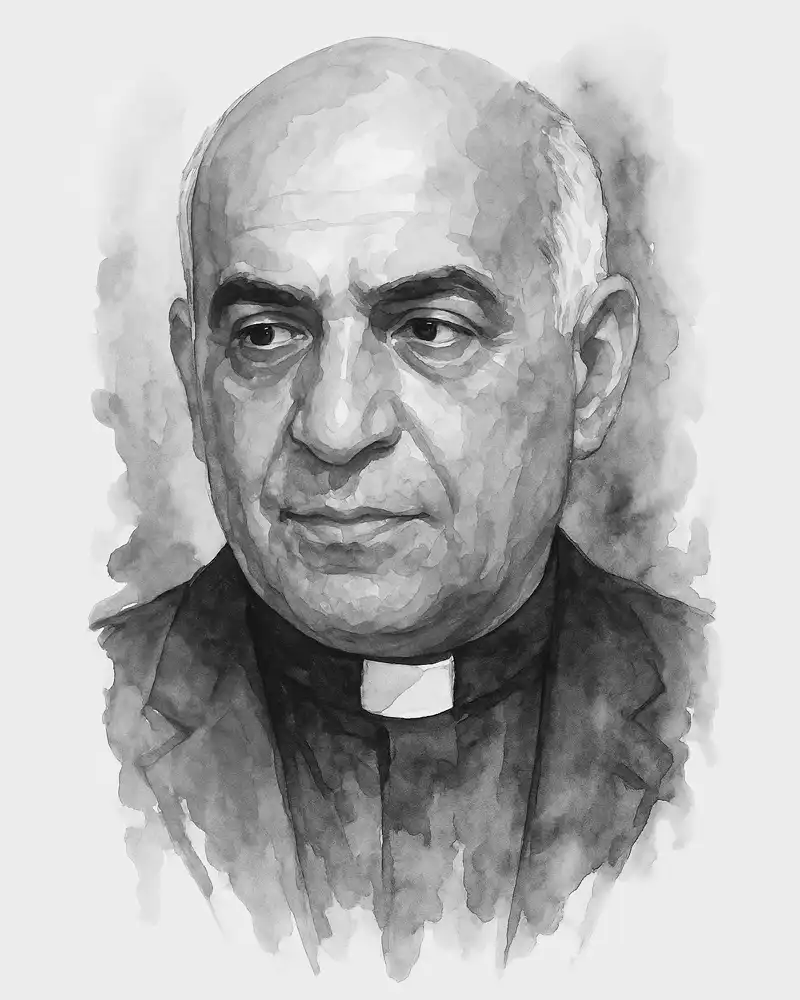
Rev Tateos Michaelian
Rev Michaelian who was a brilliant scholar and translator as well as a pastor with the Presbyterian church in Iran was killed in June 1994. He left home on 29th June and was never seen again. On 2nd July his son Galo, was called by the authorities in Tehran to identify the body. He had been shot in the head. Just weeks before, Rev Sam Yeghnazar (Founder of Elam Ministries) had asked him to take a leading role in a new Bible translation project. He had responded “I am ready and thankful to give it all I can”. Following his death, the project was named “The Michaelian Project” in his honour. It was a great emotional moment when Sam Yeghnazar presented his widow, Juliet, with the first copy of the completed Persian Bible in 2014 which we now know as the Millennium translation.
Rev Michaelian dedicated much of his efforts in the development of resources for the Church in Iran. As Executive Secretary of the Bible Society of Iran he coordinated the publication of the “Injile Sharif” also known as the Good News translation which soon became the most popular version of the New Testament in the country for many years. He also translated about 60 books into Persian. When asked why he was eager to translate so many Christian books into Persian, he responded: “Now we have very few Persian-speaking Christians, but I know God will have plenty in a few years. I know this is God’s plan for Iran…I know the doors will be opened for Christ”. At the same time, Rev Michaelian was well aware of the dangers at hand. In the last sermon he gave before his death in the AOG Church where he used to be a member he preached about how Christians should be prepared for martyrdom. We thank God for the memory of Rev Tateos Michaelian.
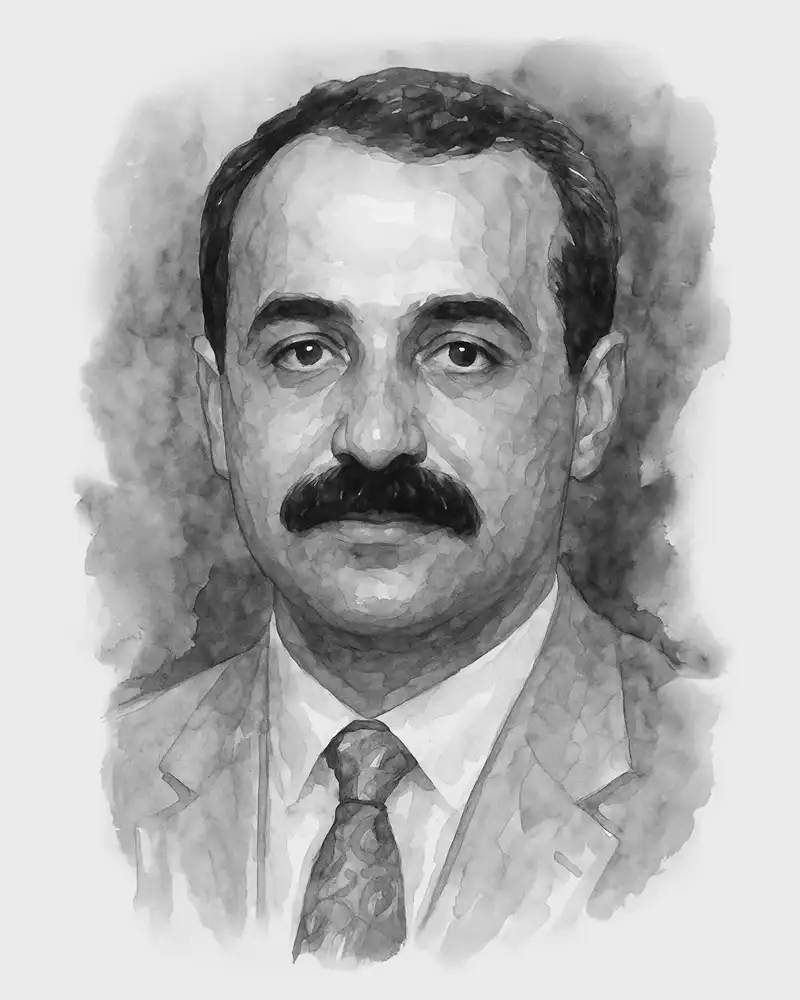
Pastor M. Bagher Yusefi
In 1996. He was found dead in a forest near his home city of Sari, the capital of the north western province of Mazandaran. He left his house at 6.00am in the morning on Saturday 28th September for prayer and never returned. Later that evening his family were contacted by the local authorities who said his body had been discovered hanging from a tree. Although the authorities at that time said that they were investigating Yusefi’s death, there can hardly be any doubt that he had been martyred because he was a Christian leader from a Muslim background. Mohammad Yusefi was the pastor of the Assemblies of God churches in Mazandaran and had been responsible for seeing the Church grow in the city of Gorgan as well as the Church in Sari. The thirty four year old Mohamamd Yusefi was born into a Muslim family but became a Christian as a young man. He was a very committed Christian, a gifted evangelist and pastor. He became known as Ravanbakhsh which in Persian means “Soul Giver”. Those who knew him were especially struck by his gentleness and humility. He loved music and wrote many indigenous Mazandarani Christian songs. His wife Akhtar had become a Christian under the ministry of Hossein Soodmand and Ravanbakhsh and his wife were a great support to the Soodmand family after his execution. They had also helped to raise the two sons of Mehdi Dibaj while he was in prison in Sari for nine years. We thank God for the memory of Mohammad Bagher Yusefi known as Ravanbakhsh.
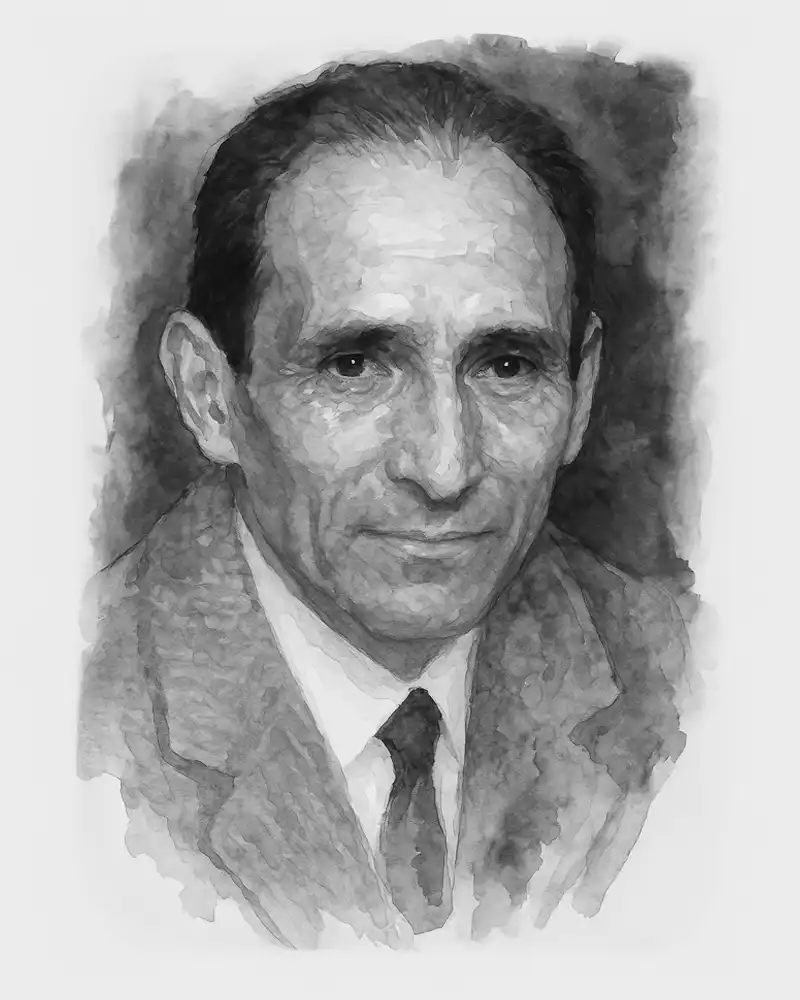
Pastor Ghorban Tourani
Ghorban was a house church leader in Gonbad-e-Kabus in northeastern Iran and was murdered on 22nd November 2005. He had been stabbed to death and his beaten, bleeding body was thrown in front of his home. Ghorban was an ethnic Turkmen who was born in Gonbad – Kabus to a Muslim family. Through the influence of his devout father, his ambition was to study Islamic theology in Egypt and become a Sunni Muslim leader. However after several years when he failed to satisfy his spiritual search he finally became convinced that there was no God and was drawn to a Marxist philosophy. At this time, he became frustrated and angry, getting into fights and participated in various criminal activities. After his marriage and while his wife was pregnant with their third child, Ghorban decided to cross the border to get a better-paying job in nearby Turkmenistan. However while he was there, he was involved in a violent argument with someone, and when a fight broke out he ended up drawing his knife and in self-defence killed his opponent.
In 1983, he was sentenced to 15 years in prison. It was in prison that he met a Russian Christian who had been imprisoned for his faith. Through the help of this Christian named Constantine and by reading the New Testament, Ghorban became a Christian and his life was completely changed. He was even given permission to have Christian meetings in the prison. Constantine challenged Ghorban to return to Iran after he is released from prison and work among the Turkmen. Ghorban was released in 1998 and did just that. Arriving home he met his third child for the first time, a 15 year old daughter. He began to share with his relatives, friends and others how Christ had changed his life and within two years 12 Turkmen had become Christians. A Church leader in Tehran mentored him in discipling and teaching these new converts. He was a very brave and fearless Christian and as a result, fanatic Muslims from his community threatened him and even his own brother once slashed his face with a knife. Nevertheless, dozens of Turkmen in his city and outlying areas came to faith through his witness and ministry. After many death threats, he was brutally murdered in November 2005. As Ghorban’s wife Achikeh, who is also a believer, saw his body lying in front of the door of her home, she shouted out several times: “O people, remember that Ghorban is a Christian martyr who laid down his life for the sake of Christ”. We thank God for the memory of Ghorban Tourani.
